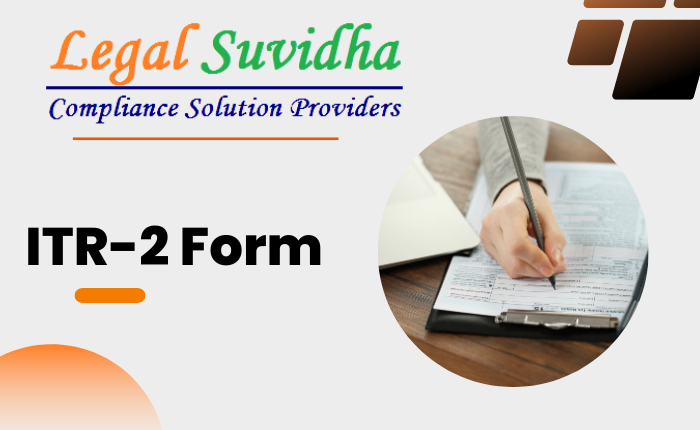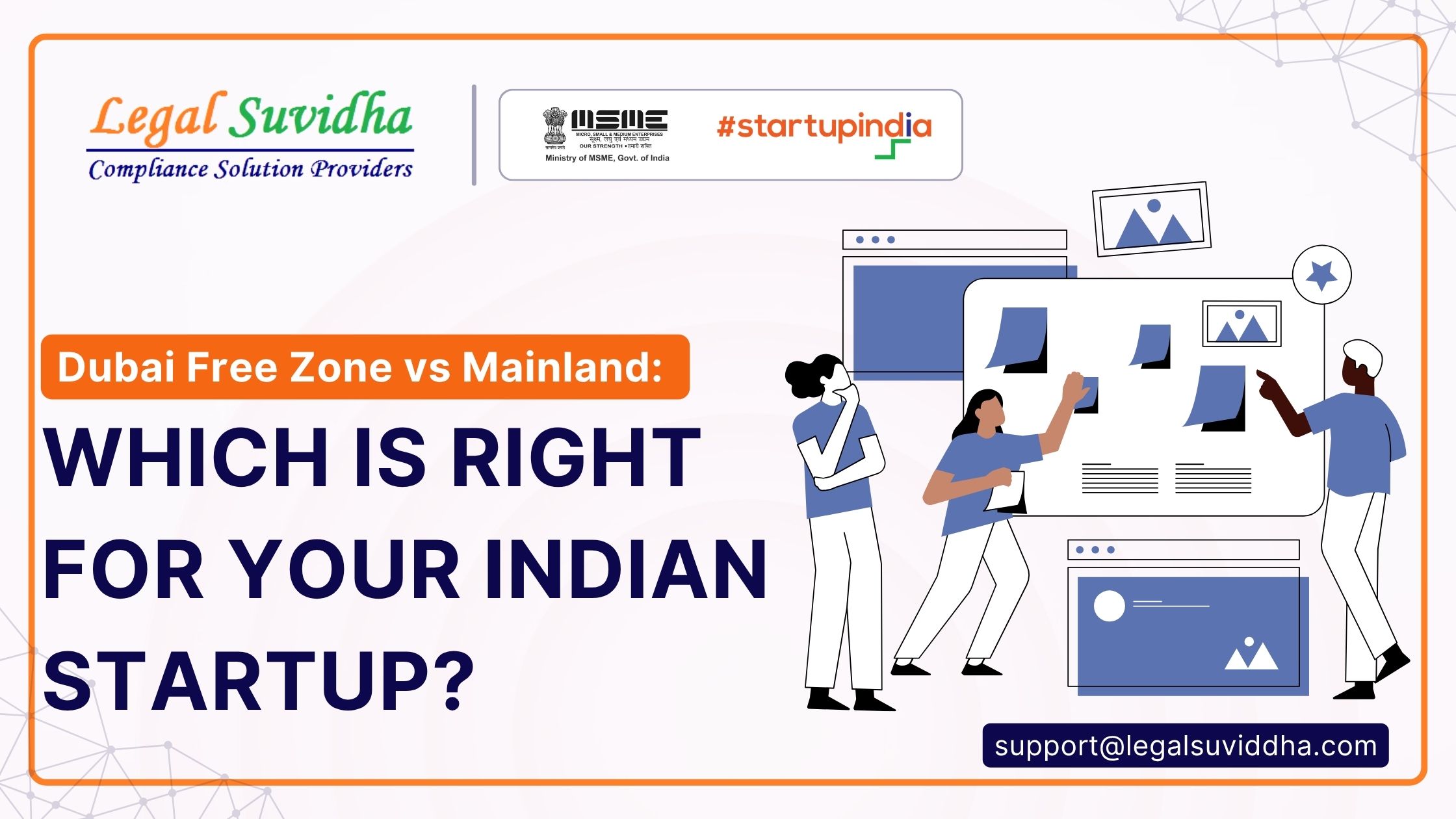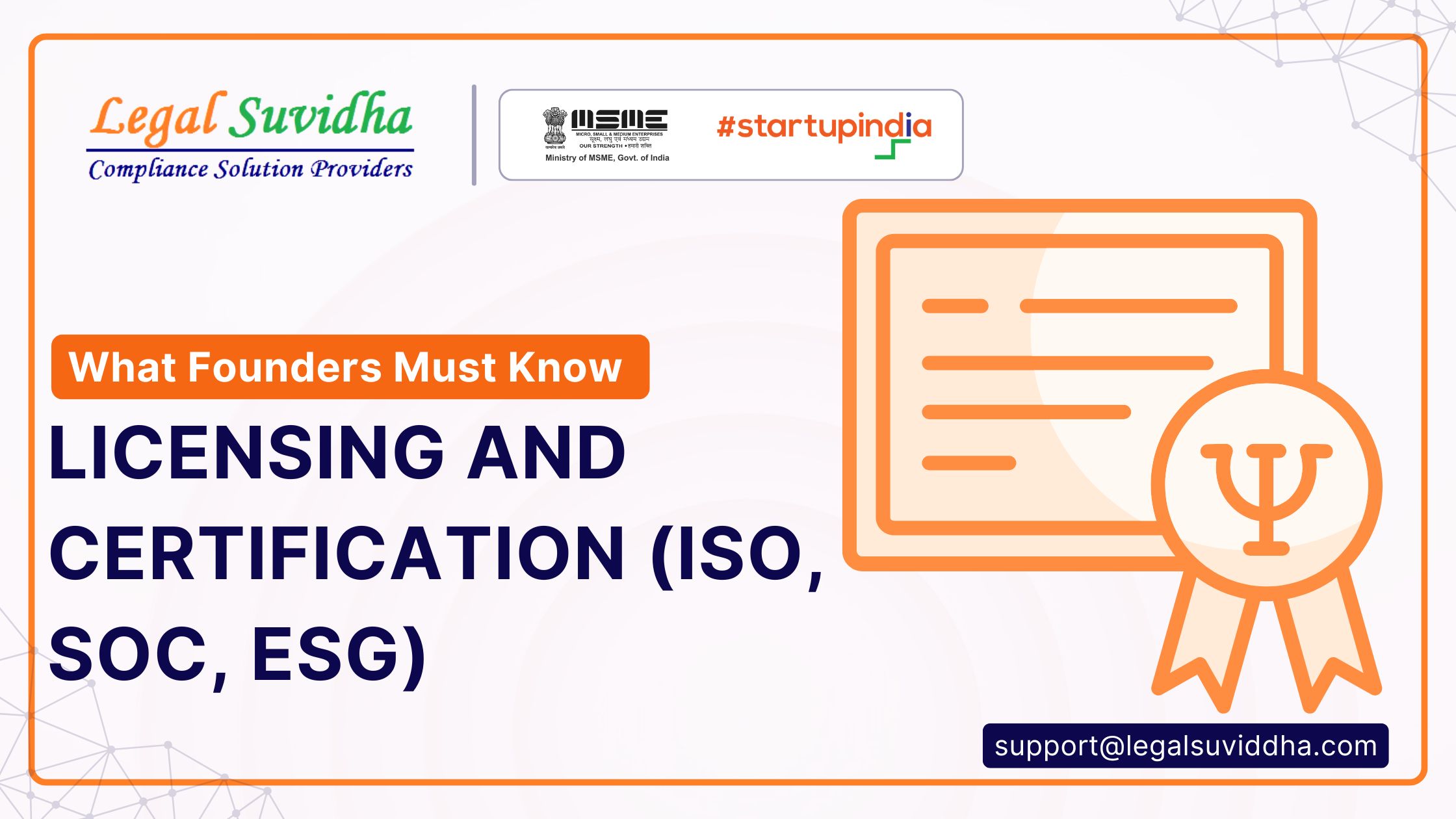Filing income tax returns is an essential responsibility for every citizen in India. It helps the government in assessing an individual’s income, ensuring tax compliance, and providing individuals with a clear record of their financial activities. While there are various types of Income Tax Return (ITR) forms available, in this blog, we will focus on the ITR-2 form, including who should file it and when.
What is the ITR-2 Form?
The ITR-2 form is a specific type of income tax return form that individuals, Hindu Undivided Families (HUFs), or non-resident Indians (NRIs) should use to file their tax returns. This form is applicable when an individual has income from multiple sources, including salary, house property, capital gains, or foreign assets.
Who Should File the ITR-2 Form?
1. Individuals with Income from Salary: If you are a salaried individual and have income from single or multiple employers, along with any other sources like house property, capital gains, or foreign assets, you should file the ITR-2 form.
2. Income from House Property: If you own more than one house property, apart from your primary residence, and earn rental income from them, you should use the ITR-2 form.
3. Capital Gains: If you have made capital gains during the financial year by selling assets such as stocks, bonds, mutual funds, property, or any other asset, you need to file the ITR-2 form.
4. Foreign Assets and Income: If you are an Indian resident or an NRI with income from foreign assets, such as bank accounts, investments, or immovable property, you must use the ITR-2 form.
5. Shareholders and Partners: Individuals who have invested in unlisted equity shares or are partners in a partnership firm should file the ITR-2 form.
It is important to note that individuals who qualify for the ITR-1 (Sahaj) form, which is for individuals with income from salary, one house property, and other sources like interest income, may not be eligible to file the ITR-2 form.
When to File the ITR-2 Form?
The deadline for filing income tax returns in India is usually July 31st of the assessment year (AY) following the financial year (FY) in which the income was earned. However, it is always recommended to file the returns well before the deadline to avoid any last-minute hassles.
Structure of ITR-2
ITR Form 2, also known as Income Tax Return Form 2, is divided into several sections and schedules to capture various aspects of an individual’s income and tax liability. Here is a breakdown of the structure:
1. Part A: General Information: This section collects general information about the taxpayer, such as name, address, PAN (Permanent Account Number), filing status, etc.
2. Schedule S: Details of income from salaries: This schedule captures the details of income received from salaries, including salary breakup, allowances, perquisites, deductions, etc.
3. Schedule HP: Details of income from house property: Here, you provide information about the income generated from owning and renting out house property, including rental income, deductions, and interest on home loans.
4. Schedule CG: Computation of income under capital gains: This schedule is used to compute income from the sale of capital assets, such as property, stocks, mutual funds, etc. It includes details of the assets sold, cost of acquisition, sale price, and computation of capital gains or losses.
5. Schedule 112A: From the sale of equity shares of a company or a unit of equity-oriented fund/business trust on which STT is paid: This schedule is specifically for reporting income from the sale of equity shares or units of equity-oriented funds or business trusts on which Securities Transaction Tax (STT) is paid.
6. Schedule 115AD (I)b(b)(iii) proviso: For non-residents – From the sale of equity share of a company or a unit of equity-oriented fund/business trust on which STT is paid: This schedule is similar to Schedule 112A but applicable to non-residents.
7. Schedule OS: Computation of income under income from other sources: This schedule captures income from various sources not covered in other schedules, such as interest, dividends, winnings from lotteries, etc.
8. Schedule CYLA: Statement of income after the set-off of the current year’s losses: Here, you provide details of losses incurred in the current year and how they are set off against income.
9. Schedule BFLA: Statement of income after the set-off of unabsorbed loss brought forward from earlier years: This schedule deals with the carry-forward and set-off of losses from previous years against the current year’s income.
10. Schedule CFL: Statement of losses to be carried forward to future years: Similar to Schedule BFLA, this schedule captures losses that cannot be fully set off in the current year and will be carried forward to future years.
11. Schedule VIA: Statement of deductions (from total income) under Chapter VIA: Here, you provide details of deductions eligible under various sections of the Income Tax Act to reduce your total taxable income.
12. Schedule 80G: Statement of donations entitled for deduction under Section 80G: This schedule is used to report donations made to eligible charitable institutions or funds that qualify for deductions under Section 80G.
13. Schedule 80GGA: Statement of donations for scientific research or rural development: Similar to Schedule 80G, this schedule is specifically for donations made towards scientific research or rural development activities.
14. Schedule AMT: Computation of Alternate Minimum Tax payable under Section 115JC: This schedule is applicable when the taxpayer is liable to pay Alternate Minimum Tax (AMT) as per Section 115JC of the Income Tax Act.
15. Schedule AMTC: Computation of tax credit under Section 115JD: This schedule deals with the computation of tax credit available under Section 115JD for the payment of AMT in earlier years.
16. Schedule SPI: Statement of income arising to spouse/minor child/son’s wife or any other person or association of persons to be included in the income of the assessee in Schedules-HP, CG, and OS: This schedule is used to report income earned by individuals or associations of persons that should be included in the taxpayer’s income under specific circumstances.
17. Schedule SI: Statement of income which is chargeable to tax at special rates: Here, you report income that is subject to special tax rates, such as long-term capital gains, winnings from lotteries, etc.
18. Schedule EI: Details of exempt income: This schedule captures details of income that is exempt from taxation, such as dividends from certain investments, agricultural income, etc.
19. Schedule PTI: Pass-through income details from business trust or investment fund as per Section 115UA, 115UB: This schedule is applicable when the taxpayer receives pass-through income from a business trust or investment fund as per Section 115UA or 115UB.
20. Schedule FSI: Statement of income accruing or arising outside India: Here, you provide information about income earned from foreign sources or outside India.
21. Schedule TR: Details of taxes paid outside India: This schedule captures information about taxes paid in foreign countries or outside India, which may be eligible for relief or credit.
22. Schedule FA: Details of Foreign Assets and Income from any source outside India: This schedule is used to report foreign assets owned by the taxpayer and income generated from foreign sources.
23. Schedule 5A: Statement of apportionment of income between spouses governed by Portuguese Civil Code: This schedule is applicable to individuals governed by the Portuguese Civil Code and deals with the apportionment of income between spouses.
24. Schedule AL: Asset and liability at the year-end (applicable in case the total income exceeds Rs 50 lakh): This schedule is mandatory to be filled if the taxpayer’s total income exceeds Rs 50 lakh. It captures details of assets and liabilities at the end of the financial year.
25. Schedule tax-deferred on ESOP: Information on tax-deferred on ESOPs received from eligible start-ups referred to in Section 80-IAC: This schedule is used to report information related to tax deferral on Employee Stock Option Plans (ESOPs) received from eligible start-ups as per Section 80-IAC.
26. Part B-TI: Computation of total income: This part summarizes the computation of total income after considering all the income, deductions, and exemptions.
27. Part B-TTI: Computation of tax liability on total income: This part calculates the tax liability based on the total income computed in Part B-TI.
28. Tax payments: Details of payment of advance tax and self-assessment tax: Here, you provide details of any advance tax or self-assessment tax paid during the financial year.
29. Declaration by the taxpayer: The taxpayer declares the accuracy of the information provided in the ITR Form.
30. Details to be filled if a tax return preparer has prepared the return: If a tax return preparer has assisted in preparing the return, their details are provided in this section.
These sections and schedules together cover various aspects of income and tax computation, ensuring comprehensive reporting and calculation of tax liability for the taxpayer.
Conclusion:
Filing income tax returns is a crucial step in fulfilling your civic duty as a responsible citizen of India. The ITR-2 form is specifically designed for individuals with income from multiple sources, including salary, house property, capital gains, or foreign assets. If you fall under any of the categories mentioned above, it is imperative to file your tax returns using the ITR-2 form within the specified timeline.
Remember, timely and accurate filing of tax returns not only helps you stay compliant with the law but also provides you with a record of your financial activities and ensures smooth financial transactions in the future. If you are uncertain about your eligibility or have complex financial situations, it is advisable to seek assistance from a qualified tax professional to ensure proper compliance with the tax regulations.
By fulfilling your tax obligations, you contribute to the growth and development of the nation, helping create a more transparent and accountable financial system.
If You have any queries then connect with us at [email protected] or [email protected] & contact us & stay updated with our latest blogs & articles








